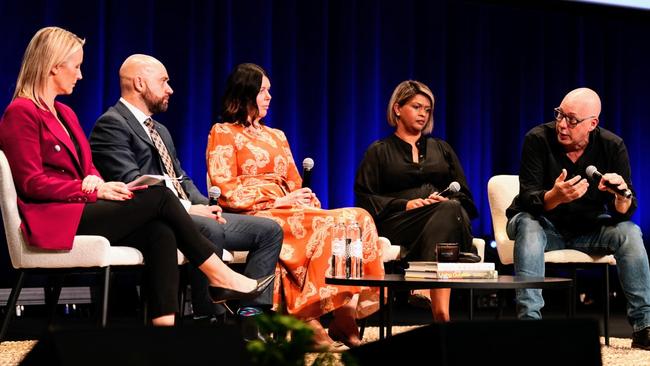Property Council congress: Developers address negative stereotypes
On the day Tim Gurner savaged ‘unproductive’ workers, developers were asked how to improve negative stereotypes of their industry. Here’s what they said.

Delivering on promises to customers and educating the wider community about the work of developers will go a long way to dismantling negative stereotypes of the industry, according to leading property figures.
Their acknowledgement that the industry has a reputation problem comes amid accusations of fraud and bribery by several interstate developers, and in the wake of controversial comments made by billionaire developer Tim Gurner, who suggested last week that Australia needed unemployment to increase by up to 50 per cent in order to create more productive workers.
Speaking at the Property Council’s annual congress last week, Commercial & General chief executive Trevor Cooke said education was key to improving public perceptions of the industry.
“I think the tropes and stereotypes around development exist, in some respects, for good reasons because there have been bad developments by some developers,” he said.
“The problem is we’re all lumped into a single class. And as an unregulated industry where anyone can put their hand up as a developer, they can enter the marketplace while not trying to achieve the multiple series of outcomes across the board that some of my colleagues here might be trying to derive.
“With end users we are often dealing with people who are in a system where we’re repeat users and they are a one-off participant, and so they come in with an informational disadvantage. That information disadvantage creates, by necessity, distrust because they can only see a profit motive behind what we do.
“So our response to that, in particular with groups like the not-for-profit sector, the healthcare or affordable housing sector, is education with the client in the first instance and really forming that partnership.”
Lendlease Communities managing director Ranisha Clarke said distrust of developers had extended to others within the broader property industry.
“There’s always been a considerable amount of distrust with developers, and I think some of that probably comes from the fact that there’s a view that we’re in it to make or save money,” she said.
“As developers we rely on experts, whether that’s ecological, design, environmental, and what I’m seeing now is there seems to be a level of distrust amongst the expert knowledge - not necessarily the expertise, but the way it’s applied.
“And I think the opportunity for us in the development industry is to consider how we then rely on that advice, usually scientific or technical, and how we align with the community and the stakeholder in the application of that advice.”
Frasers Property general manager of deliver and operations Nicholle Sparkes said delivering on promises made to customers, and engaging with them throughout the process was key to improving public perceptions.
“I think there is a lot of hesitancy, there’s some uncertainty, and there’s a lot of confusion, and I think it’s our role to ensure that the communities that we’re engaging with - the customers, the mums and dads, the investors - that were honest and transparent with what we’re delivering to them, and that we make them feel comfortable so that they trust in the product and the quality that we’re delivering,” she said.
Aveo chief executive and Retirement Living Council president Tony Randello said the retirement living sector was at a “pivotal juncture”, evolving from a property-focused sector in years gone by to one that focuses on health, wellbeing and care.
“Our sector has had some reputational setbacks in the past, but is evolving to ensure that customers get the kindness, care and respect they demand and deserve.”





To join the conversation, please log in. Don't have an account? Register
Join the conversation, you are commenting as Logout